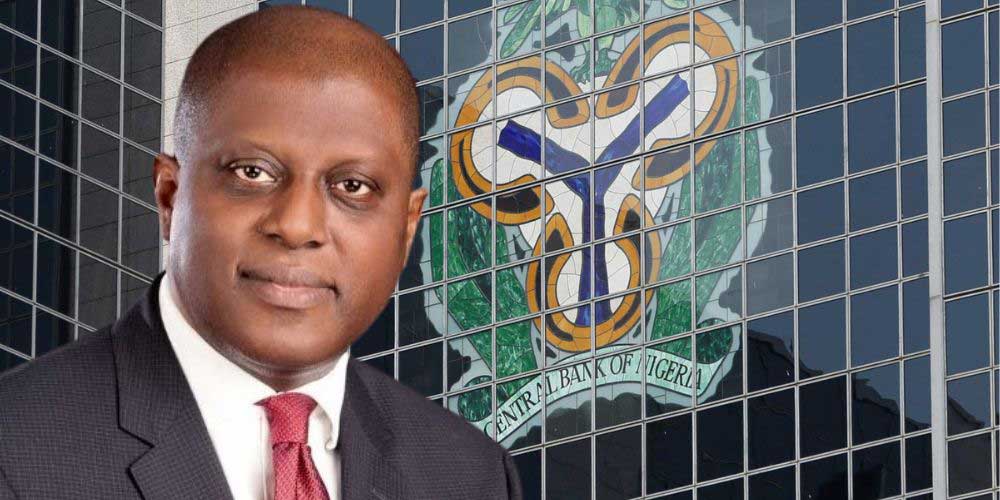Business
Nigeria: Finally, hot money is here
Published
2 years agoon
By
Marcel Okeke
It is no longer news that the continued collapse of the Naira in the foreign exchange (FX) market is already eliciting desperate and panicky measures from the monetary authorities. Unfortunately, the more such new initiatives are unleashed, the more unintended consequences are attained; thus, worsening the state of the economy. In the effort to tame the consistently soaring inflation rate, for instance, the Central Bank of Nigeria (CBN) during its Monetary Policy Committee (MPC) meeting (February 26-27, 2024), hiked the Monetary Policy Rate (MPR) by an unprecedented 400 basis points—from 18.75 per cent to 22.75 per cent. Inflation rate stood at 29.90 per cent at end-January 2024.
By the huge quantum increase of the MPR, the apex bank is indicating a very tight monetary environment, which signals to the deposit money banks (DMBs) to similarly hike their (lending) interest rates. In furtherance of its liquidity ‘mop-up’ to tame the high inflation rate, the CBN promptly deployed its Open Market Operation (OMO) instrument to enable it ‘suck away’ much liquidity in the system. Apparently, the apex bank believes that one of the reasons for the galloping inflationary trend in Nigeria is so much money (liquidity) being in circulation. And to deal with this in the money market, the CBN made an offer of N500 billion treasury bills (T-B) via OMO auction.
Unsurprisingly, the offer was overwhelmingly oversubscribed, as the apex bank sold N1.053 trillion worth of T-B, with 79 per cent of the total bid (or equivalent of $530 million) coming from foreign investors. Nigerian or local investors accounted for only 21 per cent, according to a statement issued by the CBN. This (OMO) auction was the first since the MPC meeting, which was also followed by a virtual meeting by the CBN Governor, Olayemi Cardoso, with foreign portfolio investors. The CBN said in a statement that the OMO auction was part of its liquidity management effort.
A significant development in this OMO auction is the very high level of foreign portfolio investor (FPI) participation: accounting for almost eighty per cent of the offer, and amounting to about US$530 million. In celebrating this outcome, the CBN said in a statement by its Director of Corporate Communications, Mrs. Hakama Sidi Ali that “this development underscored the level of confidence the apex bank now enjoyed from investors”, adding that the management of the CBN was optimistic that its monetary policy measures were beginning to yield positive results.
However, the import of this dominance of FPI (79 per cent) in the TB offer is ‘massive inflow’ of what is generally regarded as hot money. Thus, the US$530 million paid by foreign portfolio investors via the OMO auction is all hot money. According to Investopedia, Hot Money signifies currency that quickly and regularly moves between financial markets; that ensures investors lock in the highest available short-term interest rates. Hot money continuously shifts from countries with low-interest rates to those with higher rates—as Nigeria is now!
The rapid movement of hot money across borders can lead to significant exchange rate volatility. As investors move their funds between countries, demand for different currencies can fluctuate, causing exchange rates to rise or fall. This volatility can create challenges for businesses engaged in international trade, as well as for central banks seeking to maintain stable exchange rates. And this is where the CBN is wittingly entering into a new miasma stacked with risks.
Apparently, yet in its desperation to attract dollar inflow, the CBN ensured that it offered its Treasury Bills (T-B) under attractive terms and conditions—including very high interest rate of about 20 per cent. But while these FPIs could be attracted (the hot money), local investor confidence remains low—reflecting the 20 per cent share of the T-B offer. Meanwhile the CBN has also through its latest MPR of 22.75 per cent, indicated to the DMBs to hike their own rates—likely beyond 30 per cent in the coming days. This (lending rate) will certainly put loanable funds beyond the reach of most businesses.
Unfortunately, as the hot money is being wood and attracted, the real money that drives production and productivity—Foreign Direct Investment (FDI) –is practically ‘fleeing’ Nigeria. Data from the National Bureau of Statistics (NBS) showed a significant decline in the country’s capital importation in the whole of 2023. Amid grueling FX woes, the NBS said Nigeria only attracted a meagre US$3.91 billion in foreign capital inflow last year—the lowest since 2007 when the figure stood at a mere US$5.3 billion. Of the total 2023 inflow, FPI accounted for US$1.15 billion (or 30 per cent of the $3.91 billion) while FDI was only US$377.4 million; and ‘other investments’ were US$2.38 billion.
The 2023 capital importation, according to NBS data, was a major drop from the 2022 figure of US$5.33 billion—which was also a decrease of over 20 per cent from the US$6.70 billion of 2021. By this trend of persistently declining capital importation (especially FDI), moves by the CBN to latch onto hot money could be ruinous. Rather than take this ‘silo’ strategy in pursuit of the solution to the lingering acute FX scarcity in Nigeria, the apex bank should factor other elements into its moves.
Without a doubt, a lot of developments on the fiscal side of Nigeria’s public finance end up acting as counterpoise to most monetary policy initiatives. In this regard, has the CBN considered the role of improved FAAC-allocations to the states and local governments in recent months? There is a very high probability that most heads of the sub-national units after receiving the (huge) monthly allocations, somehow make their way into the FX market to change their trillion naira inflows into a more durable currency (the dollar).
Whether this is true or not, the reality is that the national currency (Naira) has since lost the critical function of money: the store of value. Today, hardly is there any economic agent (individuals, households and businesses) who want to keep their assets (liquid or otherwise) in Naira. This accounts for the rabid ‘dollarization’ of the Nigerian economy—where most goods and services are sold and paid for in dollars. This ‘illegality’ must be addressed expeditiously by the government of the day. The Naira remains Nigeria’s only legal tender, according to the extant law: CBN Act 2007.
As an integral part of the Federal Government, the CBN must collaborate with other agencies of the Government to ensure inflows from crude oil and non-oil exports are transparently and comprehensively captured/recorded. Today, crude oil still remains the mainstay of the Nigerian economy and as such, proceeds from its sales cannot continue to be shrouded in secrecy or opacity. The apex bank as banker to the Federal Government, as of right, should at all times have the minutest details of funds accruing from oil and all other sources.
For too long, the controversy over crude oil sales and proceeds therefrom, have occupied public discourse and created mutual suspicion between Government and the citizenry. What ordinarily should be treated as the nation’s commonwealth is usually left to be frittered away into private pockets. The bizarre phenomenon of crude oil theft seems now to be providing ‘a cover’ for a few ‘top brass’ in our society to almost fully corner Nigeria’s ‘black gold’ for themselves. It is now estimated that about eighty per cent of Nigeria’s crude oil production is being lost to theft, according to Olusegun Obasanjo, Nigeria’s former President.
In the circumstance, resort to attracting hot money into Nigeria apparently to deal with the biting FX challenge, is laden with a lot of dangers and risks. It could provide a very ephemeral breather, but could vaporize when needed most. Nigeria needs to put other fundamentals right to attract sustainable FPIs, FDIs and others. What the CBN has packaged to attract the patronage of foreign portfolio investors (79 per cent) is a very short-term gain, at best.
- The author, Okeke, a practising Economist, Business Strategist, Sustainability expert and ex-Chief Economist of Zenith Bank Plc, lives in Lekki, Lagos. He can be reached via: [email protected]
Trending

 Football1 week ago
Football1 week agoNFF dismisses claims of DR Congo’s World Cup qualifying disqualification

 Entertainment7 days ago
Entertainment7 days agoSinger Simi sparks debate after calling for death penalty for rapists

 Business6 days ago
Business6 days agoNaira mixed across markets as official window dips, parallel market strengthens

 Football1 week ago
Football1 week agoGalatasaray thrash Juventus 5–2 to hand Spalletti first champions League defeat

 Business7 days ago
Business7 days agoNaira hits N1,337 against Dollar amid positive market sentiment

 Health7 days ago
Health7 days agoStudy suggests possible link between cell tower radiation and rising diabetes cases

 Crime1 week ago
Crime1 week agoSouth African Court charges three over murder of Nigerian e-hailing driver in Pretoria

 Football1 week ago
Football1 week agoFlick admits defensive errors in Barcelona’s loss to Girona

